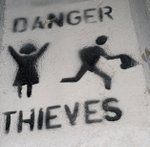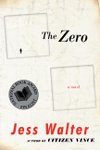
Joe Andoe's book has been out for over a week now, and the reviews are starting to roll in. Her are some of the reviews!
From Publisher's Weekly:
Jubilee City: A Memoir at Full Speed
Joe Andoe. Morrow, $22.95 (224p) ISBN 978-0-06-124031-7
In this charming memoir, Andoe narrates his journey from his Tulsa childhood through redneck, hard-partying teen years to a highly successful career as a (hard-partying redneck) painter in New York City. While Andoe may not be a professional writer, his humor and offbeat artistic sensibility make up for any lack of prose-writing chops. Through discrete anecdotes that seldom run longer than two pages, Andoe assembles vivid portraits of his family and friends and of the various environments he inhabited-the working-class Tulsa neighborhoods of the 1960s, the high school and college drug culture at the end of the hippie era, and the New York art scene of the 1980s. Andoe rarely said "No" to drugs, and the marginal characters and dangerous encounters of the lowlife provide the book with a great deal of energy and pathos; at times his memoir reads like a more amateur version of Denis Johnson's Jesus' Son. Yet whenever the gonzo stories verge on tedium, Andoe modulates his tone and shows himself as the stay-at-home dad, the outdoorsman, the artist. While Andoe has an occasional tendency to settle scores (his ex-wife receives particularly brutal treatment) or trumpet his status as an outsider, for the most part his wide-eyed sense of wonder and keen observations make the everyday strange and fresh. (Aug.)
And a few from readers, directly from the source!
It starts out simple- like some Little Rascals' hold over- HILARIOUS.
But then all of a sudden the story takes a turn and the mood plummets; there's a true depth of feeling that Joe takes with this book because there are really funny and amusing ups but when he can hit those low gritty notes too- it makes you wonder if I should have been getting drunk and stoned and driving really fast down back roads to old strip mines and skinny dipping with drunk girls with sun bleached denim cut-offs and collecting on some of those 'life stories' ... rather than going to those writing workshops.
True feeling: look out for the story BABY NEEDS SHOES- and once you read past that chapter you'll see the book is like a really good Fellini film where your favorite characters are both honestly terrible and deceptively holy- they can be the worst people you could imagine and yet! they're so animated and they're so believable- everyone's really good and everyone's really hungry at the same time.
It's a really tight read and I finished it in one day.
-JH Truman from Elko, NV
JUBILEE CITY is one of the most moving and unusual memoirs I've ever read. It's snapshots from an artist's life that are often funny and heartbreaking all at once. They are always moving, and often universal experiences. Andoe has a fresh and unique way of expressing himself. I loved this book and found myself reading stories from it over and over again.
-Daisy Alexandra from New York City
Hell yeah Jow Andoe! I'll keep updating the reviews as they come in.






.jpg)








